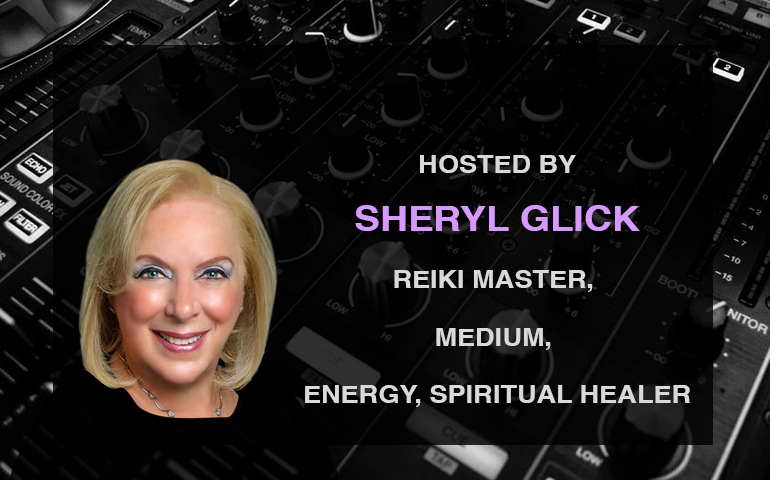Internet Radio Show
Hazardous Conditions in The Electronics Manufacturing Industry
- Heather White
- Download
- Click "" below to listen

In today’s episode of Healing from Within, your host Sheryl Glick, author of The Living Spirit: Answers for Healing and Infinite Love welcomes Heather White, the producer and co-director of the film, Who Pays the Price? The Human Cost of Cheap Electronics, which follows the stories of injured and chemically poisoned young Chinese workers in factories that manufacture the world’s leading electronic brands. Their experiences underscore the human cost being paid by workers globally to conserve American consumer’s demand for cheap gadgets and devices.
Heather White, a former network fellow at Harvard University’s Edmund Safra center for Ethics from 2011-2014, has channeled her investigative work on transparency in global supply chains leading to improved industry standards in social auditing and verification practices. Heather, as the founder and former execute director of Verite, a nonprofit organization, has won international recognition for her efforts to reduce labor violations in factories, production for American consumer brands.
Heather and Sheryl will discuss the film Who Pays the Price and will focus on the struggles for justice in unthinkable conditions where worker rights are denied, and a government crackdown has curtailed efforts to organize labor. We will be concerned with understanding that excessive consumerism creates extreme work conditions in countries where young workers fight for their health and their futures, while factories engage in cover-ups that include denying that they ever worked in them. Workers and family members expose these conditions and we are given an opportunity to recognize that it will take a cooperative effort by many to protect these workers in any county as it is a worldwide concern.
Sheryl asks Heather what exactly goes on in the Electronics Manufacturing Industry. The Electronics Manufacturing Industry is far from clean in the areas of environmental sustainability and worker’s rights… the growing risk of worker illness due to exposure to dangerous chemicals. Smart phones and laptops require many chemicals in the manufacturing process for cleaning screens and component parts such as chips, or other purposes. Workers do not always have sufficient protective gear or training for handling toxic substances. Exposure to dangerous chemicals can lead to many diseases such as cancer, leukemia, nerve damage, liver and kidney failure, as well as reproductive health issues.
Some of the people who have been helpful and influential in helping Heather produce this film and bring awareness about this problem to the public was Ming Kunpeng. Ming started working at an Apple chip supplier when he was 19 years old. He was required to handle a harsh chemical known as benzene without proper training and protective gear. In 2009, at age 22 Ming was diagnosed with leukemia. After years of many testing, Ming Kunpeng's illness was determined to be occupational in nature. Requests to the Apple chip supplier to pay for Ming Kunpeng’s treatment were responded to too late and did not cover the care he needed. On December 28th 2013, despite the supportive efforts of his entire family to get him ongoing care and medication, Ming Kunpeng committed suicide by jumping from the roof of his building. His fight is one that is fought by thousands of benzene-poisoned leukemia patients.
In China, an estimated 130 million workers migrate from their homes in the countryside to the special economic zones where factories are situated. This is roughly half the US population. An estimated 12 million of these people end up working in consumer electronics factories. The work is grueling. According to Electronics Watch, workers receive low wages, often work 12-hour days, six to seven days per week, are forced to work overtime, are discriminated against, are unable to organize, and receive few or no benefits such sick leave, holidays, or job security. These young workers, between 14 and 25 years old, move in hopes of working hard so they can help to support their families and save enough money to start a family of their own. What these workers don’t realize when they embark is that they may be risking their health, future ability to work, and even their lives.
Sheryl asks Heather who the companies are we are focusing on in this film. Heather tells Sheryl it is mainly Apple. Factories making Apple products use toxic chemicals that cause cancer (carcinogens such as benzene), chemicals that cause birth defects and miscarriages (reproductive toxins such as toluene), and chemicals that cause nerve damage (neurotoxins such as n-hexane). Unfortunately Apple is not alone in manufacturing electronic devices in dangerous factories (in China and elsewhere), and no electronics manufacturer has committed to removing dangerous chemicals from their supply chain. Samsung, Sony, Nokia, Blackberry and others all make phones at factories in China and elsewhere with health and safety concerns. Workers need urgent, sector-wide reform to protect their rights and safety.
Heather is mainly focusing on the company Apple because Apple is the smart phone pioneer, seen as a leader in the consumer electronics market. As a massive global company, Apple has the power to improve working conditions throughout the electronics-manufacturing sector by influencing both its suppliers and its competitors. There are safer alternatives to the most dangerous chemicals available, and Apple can take the lead in using them.
Apple is also highly profitable. Removing dangerous chemicals from its supply chain is not expensive and something Apple can easily afford to do. In the US, Apple has a strong commitment to the health of its employees, which should extend to its workers in China and other countries. Industry experts have estimated it would cost Apple roughly less than $1 per phone to eliminate the most dangerous chemicals.
Finally, Apple cares about what its customers want, and there are many of them. In 2013, the iPhone 4S was the single most popular smart phone, with more than 97 million sold worldwide. Apple customers are devoted, but hold Apple to a higher standard and expect the company to act responsibly.
This campaign is not calling for a consumer boycott of Apple products. Rather, we are asking Apple customers to raise their voices to a company they patronize, and to avoid needlessly upgrading their devices until Apple has made changes to protect workers.
Sheryl wonders since these companies are making so much money, then why can’t these companies make the conditions in their factories safer for their workers? Heather tells us more than 1.5 million people are estimated to work in Apple's supplier factories. As a company that made $37 billion in profit in 2013, Apple can and must put an end to these abuses. For workers struggling to access care, Apple and its supplier factories must institute a safe and rapid mechanism for workers to report illnesses.
Despite Apple’s Code of Conduct that prohibits the handling of dangerous chemicals without protective gear or training, extensive problems persist. Recent cases in Apple supplier factories have occurred in which workers have contracted leukemia due to benzene exposure2, nerve damage due to n-hexane exposure3, and skin conditions due to handling acidic chemicals without protection. Committing to eliminate benzene and other chemicals known to be harmful to human health from Apple’s supply chain would help prevent more workers from losing their lives or livelihoods themselves because of occupational illnesses from making iPhones.
Heather tells us the chemical benzene is a Group A carcinogen -risky and definitely harmful. Exposure to benzene can cause leukemia and other blood disorders, as well as reproductive problems and danger to fetuses. The Occupational Safety and Health Administration has set a permissible exposure limit of 1 ppm in the workplace during an 8-hour workday, 40-hour workweek. China’s permissible limit is 1.878 ppm, however the norm for workers in Apple factories is 60-hour workweeks and workers are not reliably provided with necessary safety equipment and training. There are suitable and safer alternatives for benzene that are only slightly more expensive. The Ban Benzene campaign has identified cyclohexane and heptane as possible substitutions for benzene in electronics-manufacturing. Contract free, the iPhone 5S sells for $750 on average, with a profit margin of 54 percent, meaning Apple earns $405 per phone after expenses. Slightly more expensive, less-deadly chemicals are within reach.
Heather mentions some charitable organizations that may help workers in China. One is the The International Chemical Secretariat (ChemSec) which has created helpful resources for businesses on hazardous chemicals and suggestions for substitution. Their Substitute It Now (SIN) List details 626 hazardous chemicals for which substitutes should be made to ensure a safer, toxic-free world. They also provide free assistance for chemical substitution via SUBSPORT, their substitution support portal. Another organization is known as The Bad Apple campaign which is led by Green America, a not-for-profit membership organization founded in 1982. Green America’s mission is to harness economic power—the strength of consumers, investors, businesses, and the marketplace—to create a socially just and environmentally sustainable society.
Some the demands of The Bad Apple Campaign are;
- Eliminate Toxic Chemicals.
Stop the use of the most dangerous, toxic chemicals in Apple supplier factories and replace them with safer alternatives.
Factories making Apple products use toxic chemicals that cause cancer (carcinogens such as benzene), chemicals that cause birth defects and miscarriages (reproductive toxins such as toluene), and chemicals that cause brain damage (neurotoxins such as n-hexane). Apple must identify and disclose all chemicals used in supplier factories as well as those in all Apple products. In situations where the danger of a chemical is unknown, Apple must require proper testing. Apple must institute and enforce appropriate exposure monitoring, medical monitoring, and effective training and management systems must be in place to ensure worker health and safety. Supplier factories must provide workers with adequate safety training and protective gear free of charge. - Ensure Adequate Medical Treatment. Create a fund to pay for the treatment of injured workers and ensure that all workers injured while making Apple products receive adequate treatment. For workers struggling to access care, Apple and its supplier factories must institute a safe and rapid mechanism for workers to report illnesses.
- End Worker Abuse. Apple and its supplier factories must ensure compliance with the ILO’s eight Fundamental Principles and Rights at Work, article 32 on the UN Convention of the Rights of the Child, and national laws regarding occupational health and safety, worker benefits, and minimum wage for all workers, including young, migrant workers. Apple and its suppliers must ensure worker empowerment to effectively oversee and enforce these rights without interference or retaliation from management.
Heather says anyone can get involved in The Bad Apple Campaign by participating in events, being a volunteer, or joining Green America, go to www.greenamerica.org.
Heather and Sheryl have attempted to share conditions in the factories in China which if allowed to go unnoticed, will continue to create health issues, death, and undermine our evolution as cooperative and caring members of the word community. In Sheryl’s book, The Living Spirit: Answers for Healing and Infinite Love, she share how in living my life in the past, only in the materialistic and physical world, Sheryl was largely unprepared to discover the deep compassion and love that was at my heart or soul-based essence. In learning about the universal laws of energy, Sheryl was able to become a Reiki Energy healing practitioner/teacher and a medium discovering that we are so much more than our physical bodies, minds, the conditioning patterns, and rules of any company or government. Our greatest happiness and purpose for living resides in being of service to others and to correcting any injustice where it may be seen.
Heather and Sheryl wish you to combine the knowledge of your physical life with the world of Spirit, vibrate and function at an empowering level so that we may all work together to ensure good conditions in schools, factories, homes…everywhere, assuming personal responsibility for our own well-being and where possible, the well-being of every living soul.
Today's Guest
